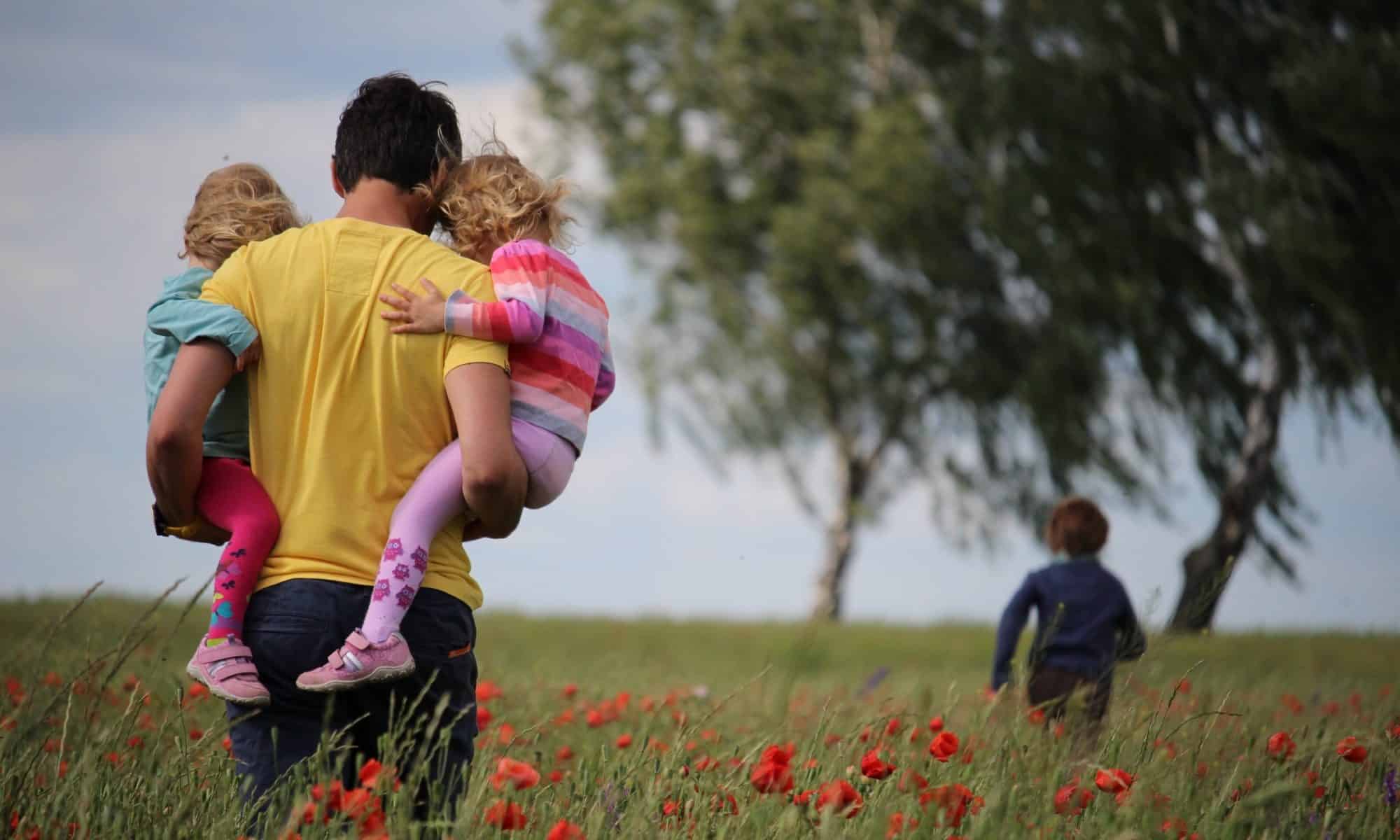We know that early childhood interventions have a high return on investment and long-term societal advantages. Why then do we not prioritise early childhood interventions? Here we look at the policy landscape for action: where we are now and where this year of changing European political priorities will take us.
Co-authors: Reka Tunyogi (Eurochild) and Dorota Sienkiewicz (EuroHealthNet)
Amidst ongoing EU-level policy debates on the Future of Europe, sustainability, productivity, and growth, the health and well-being of children – and their right to participate in those developments – are sometimes missed. High-level political decisions are made without taking a closer look at what matters to children living in Europe. The call could not be clearer:
- The Children’s Declaration adopted on 7 May, and drafted by children, calls on EU leaders to enable and encourage the involvement of children in decision-making from local, national, to EU levels. [i]
- 70% of Europeans want the EU take more action in the field of health and social security[ii], and for the vast majority of them good health (98%) and quality education (93%) are essential for getting ahead in life[iii].
- A joint survey launched by Eurochild and UNICEF in June 2018 shows that children and young people across Europe are most worried about not finding a job when they get older. With 43.6% youth unemployment rate in Greece and 38.6% in Spain, concerns are visible among children as young as 10 years old in many European countries. Furthermore, 74% of respondents said that schools are not preparing them well enough for the next stages of their lives.[iv]
Despite steady improvements in last decades, the state of children’s health and well-being in the EU is far from perfect. About a quarter of the EU’s child population lives in poverty and social exclusion, resulting in unequal access to resources and opportunities for a healthy and happy childhood, good quality education, and subsequent employment performance in later life. Social mobility in European societies is uneven and not improving, thus disadvantage is often passed from one generation to the next.
In an ‘average OECD country’, it could take five generations for children of poor families to exit poverty.
Data collected at EU level does not yet measure children’s subjective well-being, although there are indicators reflecting their socio-economic situation and some health outcomes. In this regard, a welcome move is a launch of EU-funded project (EuroCohort[vi] ), the first Europe-wide longitudinal child well-being study. A recently developed child specific material deprivation indicator is now able to monitor children’s lack of access to goods that matter for their social inclusion.[vii] The EU data also reflects a steep socio-economic gradient – while a total number of children with unmet need for medical care is below 2%, the poor-rich divide is striking: almost 29% poor children in Belgium, more than 15% in Ireland and almost 12% in Romania report problems in children’s access to medical care.[viii]

Inequality in society can be best addressed in childhood. There is an intrinsic link between individuals’ circumstances and the well-being of society. We know that investing in early years as first best window of opportunity to lay foundations for good human and societal development. High-quality, birth-to-five early childhood interventions such as family support, education and care provide a higher rate (13% more) of return on investment (ROI) than the later ones.[ix] There is a need for public policies to support social investment taking such a life-cycle approach. [x]
EuroHealthNet and Eurochild believe that investing in children is smart and valuable. It must not be an afterthought. Indeed, the rationale of the social investment paradigm in this regard is to “strengthen people’s current and future capacities by helping them ‘prepare’ for life’s risks rather than simply ‘repairing’ the consequences”.[xi] Preventing poverty is a long-term investment requiring vision and dedication from policy- makers. It is not a policy area where the desired outcomes are seen by the next election year. Eurochild produced a framework called Childonomics for measuring the social and economic outcomes of financial investments in children precisely to raise awareness about investing public resources from an early age.[xii]

EU-level processes do offer some support for such re-prioritisation, with the European Commission’s Recommendation on Investing in Children (2013), the European Pillar of Social Rights (2017), the Council Conclusions on integrated early childhood education and care (2018) stating the reduction of child poverty as an EU priority. The year 2019 offers a unique window of opportunity with the renewal of the EU political landscape post-European elections this May. The incoming European Commission will be responsible for designing a new overarching policy framework for its Member States – which may have stronger links to the Sustainable Development Goals – and will be key for putting children’s well-being higher on the political agenda. The next EU long-term budget should also serve that purpose, including through its stronger links to the social dimension of the European Semester, the EU’s economic and social policy coordination mechanism.
Resulting from a push by the European Parliament, there is now a possibility to put aside EU money from the European Social Fund Plus (as of 2021) to tackle child deprivation through a proposed EU Child Guarantee. The initiative would support children in vulnerable situations to access key services such as healthcare, nutrition, education, housing and early childhood education and care.[xiii]
In particular at times when political priorities can be redrafted – for better and for worse – it is important that the (sub)national initiatives and actions ensure that children’s well-being stays on decision-makers’ minds when they are taking on their new roles in EU institutions.
Background and further reading.
- EuroHealthNet and Eurochild are both partners in the EU Alliance for Investing in Children, which is brings together over 20 European networks sharing a commitment to end child poverty and to promote child well-being across Europe and pushing for full implementation of the European Commission Recommendation “Investing in Children – Breaking the Cycle of Disadvantage”. It has recently advocated for strengthening the European Social Fund Plus in the EU budget negotiations.
- EuroHealthNet Country Exchange Visit to France (June 2018): Giving all young children a healthy start – an exchange on evidence-based interventions. The visit highlighted a number of good practices in a variety of countries across Europe from the French new Health Strategy 2018-2022 that focuses on children, young people and the parents (through the National Prevention Plan and ‘Support Parenting’ plan), EuroPeristat (29 countries collecting data on perinatal health indicators), French Child and young people poverty prevention and control strategy, or Scotland’s work to reduce childhood and adolescent health inequalities & WHO Europe collaborating centre on childhood and adolescent health.[xiv]
- “Making social rights work for children”, Eurochild 2018 report on the European Semester[xv] provides an assessment of the first European Semester since the Proclamation of the European Pillar of Social Rights (November 2017), as well as alternatives to the country specific recommendations from Eurochild members. The report is based on input from 23 Eurochild members in 18 countries.
- Reacting to the sensations around the selection of top EU officials Eurochild recently launched an awareness raising petition calling for a European Commissioner for Children. See more at: http://www.commissionerforchildren.com
References
[i] Bucharest EU Children’s Declaration on Child Participation in Decision-Making at National and EU levels. Eurochild, 2019. Accessed on 17 May 2019 from https://childrendeclaration.typeform.com/to/h8dSPt
[ii] Two years until the 2019 European elections. Special Eurobarometer of the European Parliament. European Parliament, 2017. Accessed on 17 May 2019 from http://www.europarl.europa.eu/at-your-service/files/be-heard/eurobarometer/2017/two-years-until-the-2019-european-elections/analytical-synthesis/en-analytical-synthesis-two-years-until-the-2019-european-elections.pdf
[iii] Special Eurobarometer: How fair do Europeans think life in the EU is? Press release. European Commission, April 2018. Accessed on 17 May 2019 from http://europa.eu/rapid/press-release_IP-18-3427_en.htm
[iv] The Europe Kids Want. Sharing the views of children and young people across Europe to mark World Children’s Day. Eurochild, November 2018. Accessed on 17 May 2019 from https://www.eurochild.org/fileadmin/public/05_Library/Thematic_priorities/05_Child_Participation/Eurochild/Europe_Kids_Want_Brochure.pdf
[v] A Broken Social Elevator? How to Promote Social Mobility. OECD, 2018. Accessed on 2 May 2019 from http://www.oecd.org/social/broken-elevator-how-to-promote-social-mobility-9789264301085-en.htm
[vi] https://ec.europa.eu/social/main.jsp?langId=en&catId=89&newsId=9353&furtherNews=yes
[vii] Children are deprived if they lack (for affordability reasons) at least three of the following items: Some new clothes; Two pairs of shoes; Fresh fruits & vegetables daily; Meat, chicken, fish daily; Suitable books; Outdoor leisure equipment; Indoor games; Leisure activities; Celebrations; Invite friends; School trips; Holiday; Household: Replace worn-out furniture; Household: Arrears; Household: Internet; Household: Home adequately warm; Household: Car
[viii] Children’s unmet medical and dental needs. European Commission, Eurostat, February 2019. Accessed on 17 May 2019 from https://ec.europa.eu/eurostat/web/products-eurostat-news/-/DDN-20190215-1
[ix] https://heckmanequation.org/www/assets/2017/12/abc_comprehensivecba_JPE-SUBMISSION_2017-05-26a_sjs_sjs.pdf
[x] There’s more to gain by taking a comprehensive approach to early childhood development. The Heckman Equation, 2017. Accessed on 17 May 2019 from https://heckmanequation.org/www/assets/2017/01/F_Heckman_CBAOnePager_120516.pdf
[xi] Taking stock of the 2013 Recommendation on Investing in children. European Commission Staff Workign Document, 2017. Accessed on 2 May 2019 from http://ec.europa.eu/social/BlobServlet?docId=17618&langId=en
[xii] Childonomics. Measuring the long-term social and economic value of investing in children. Eurochild, 2017. Accessed on 17 May 2019 from https://www.eurochild.org/projects/childonomics/
[xiii] EU Child Guarantee. An EU that helps fight child poverty. Eurochild, February 2019. Accessed on 17 May 2019 from https://www.eurochild.org/fileadmin/public/03_Internal/Calls/Child_Guarantee_pdf_fin.pdf
[xiv] Giving all young children a healthy start – an exchange on evidence-based interventions. Country exchange visit, 12-13 June 2018 (France). EuroHealthNet, 2018. Accessed on 2 May 2019 from https://eurohealthnet.eu/members-section/giving-all-young-children-healthy-start-exchange-evidence-based-interventions-saint
[xv] Making social rights work for children. 2018 Eurochild Report on the European Semester. Eurochild, 2018. Accessed on 17 May 2019 from https://www.eurochild.org/fileadmin/public/05_Library/Thematic_priorities/02_Child_Poverty/Eurochild/09_Eurochild_SemRep2018UPATED_31.10.2018.pdf


